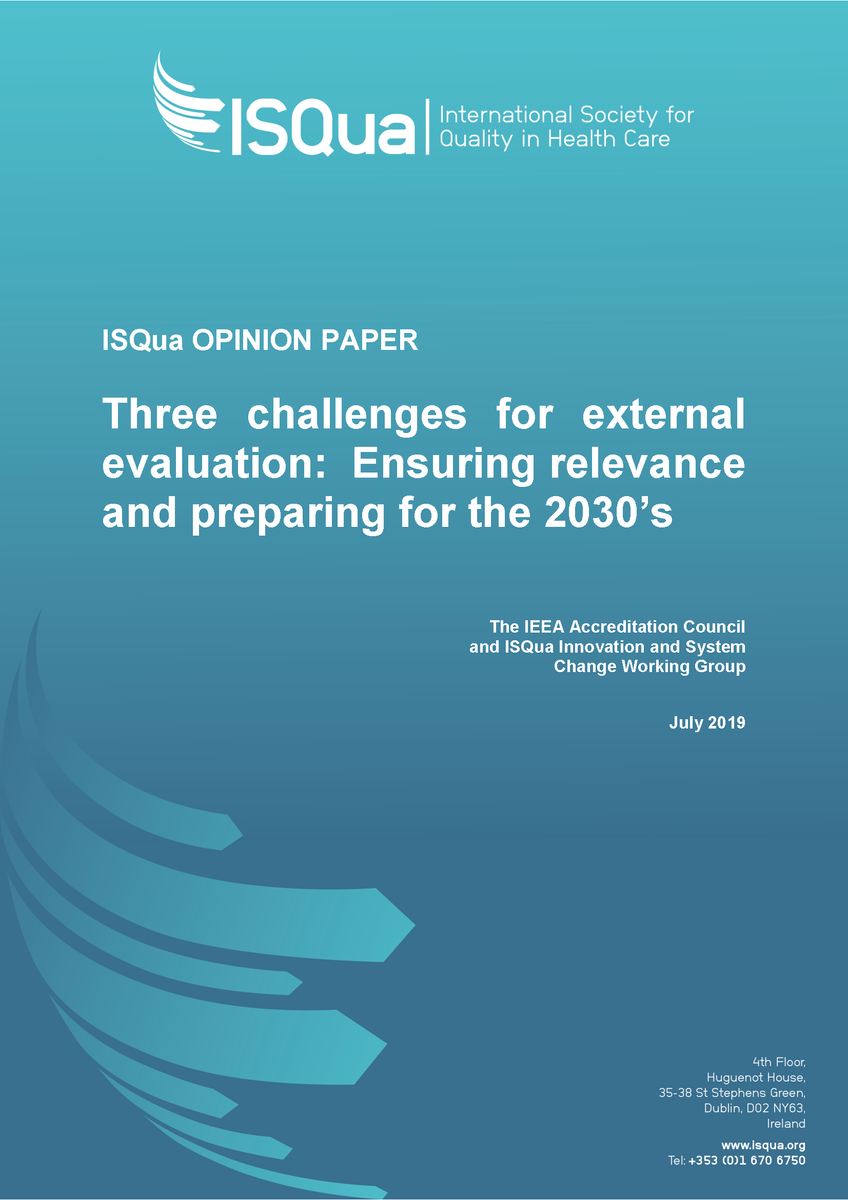ISQua Opinion Paper - Challenges for External Evaluation

Three challenges for external evaluation: Ensuring relevance and preparing for the 2030’s
Since its origin, accreditation and certification programmes (collectively, external evaluation) have been anchored on four pillars:
first, a priority is given to acute medicine, short term outcomes, and process-driven approach;
second, a priority is given to the evaluation of individual medical organizations/facilities;
third, a priority is given to 'one size fits all’, with the same requirements and standards for all hospitals at the National level;
and fourth, and last but not least, a logic of ‘reach for excellence’ or ‘reach for improvement’.
With these four pillars, while their impact on outcomes remains challenged, external evaluation programmes have proven their value and relevance. They do improve quality of care (incrementally), identify risk and enable improvement.
However, the recent and fast-growing occurrence of tremendous social changes impacting health and care (massive ageing, growing regional disparities, lack of medical resources, digital revolution) coupled with many tremendous technical changes already existing or coming soon (e.g. day surgery, personalized medicine, big data, artificial intelligence) lead one to question if the above approach is sustainable.
Does it offer the most appropriate external evaluation approach to assess the quality of health and social care, to meet public and governmental expectations, and will it mitigate future risks in the 2030s?
This opinion paper, co-authored by the members of the ISQua External Evaluation Association Accreditation Council, and the Innovation and Systems Change Working Group of ISQua, is a first attempt to define the extent of the challenge, and tentatively show what type of (r)evolution is required to address evaluation in the 2030s.
Webinar with Rene Amalberti
We were delighted to recently host Professor René Amalberti for a supporting webinar on the Opinion Paper - Three challenges for external evaluation: Ensuring relevance and preparing for the ’30s.
The webinar discussed the paper and explained why the present model of external evaluation needs to change.
Three directions for improvements were debated:
First, making evaluation more context-dependent, region-specific, with flexible standards and varying levels of achievement depending on the context—that is, flexing to the resources, services and complexity of the organization or services being assessed.
Second, making a pivotal change and adopting the patient’s journey as the focus and pathway for assessment purposes.
Third, adapting external evaluation to the digital era and the exponential growth of complex biomarkers in healthcare.
René Amalberti has spent his life working on systemic risk management in various industries and services (Healthcare, Aviation, Nuclear, Chemical industry, Fishing industry, Land transportation). He was a member of the board of ISQua from 2014 to 2017, and took the lead of ISQua's Innovation and System Change Working Group in 2015, for which he is still the president (ISCWG). He has published over 150 international papers, chapters, and authored 6 books which have been translated into many languages (last books: Navigating safety, Springer, 2013, and Safer healthcare: strategies for the real world, Springer 2016 (co-authored with Charles VIncent).
Watch the full recording below:

